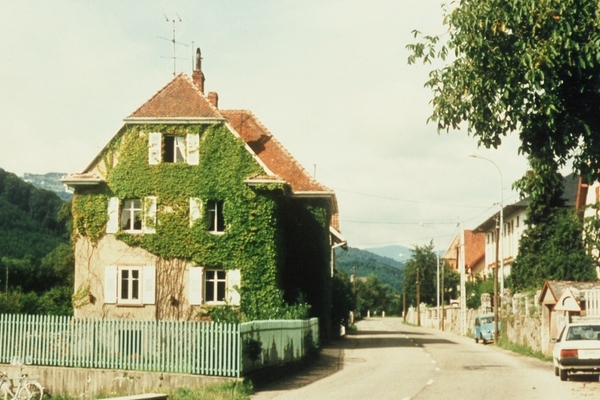Maison Albert Schweitzer at Guensbach
After Albert Schweitzer's death, his home in Guensbach became a museum and archive. The Dr. Schweitzer’s Hospital Fund, now incorporated with Reverence for Life UK, has supported this museum with donations since 1995.
The Maison Albert Schweitzer was Schweitzer's home and office where he wrote his books, planned his lectures and organ recital tours and housed the staff that managed his European affairs. It was here that medicines and other essential supplies were sourced and organised for shipment to Lambarene. Domestic and medical volunteers were interviewed here and briefed before they travelled to the hospital in Lambarene.
Schweitzer died in 1965 and was buried in Lambarene. Shortly afterwards, one of his two personal assistants, Ali Silver came to live in the Guensbach house and began the huge task of cataloguing all the correspondence and photographs to establish an archive of Albert Schweitzer's legacy. Thus, the house became a museum and archive where regular seminars, discussion groups and organ classes were organised. The Dr. Schweitzer’s Hospital Fund has given both personnel and financial support towards its management and upkeep over the years.
From 1985, Vreni Mark helped Ali Silver at the Maison Albert Schweitzer. After Ali’s death in 1987, Vreni took over the role of director and held it for two years before passing it on to Sonja Poteau.
During those years, two further buildings in Guensbach were bought and the Maison Albert Schweitzer became the official seat of the International Albert Schweitzer Association (AISL). Annual General Meetings of this organisation, of which Reverence for Life UK is a member, are held here. Recently, the Maison Schweitzer has built a new exhibition space and those who wish to study the legacy of Albert Schweitzer can access their archive.


